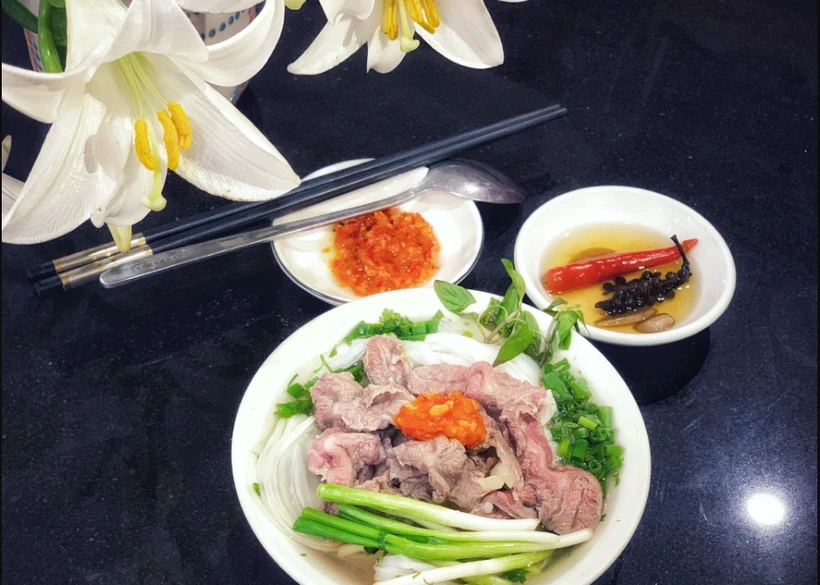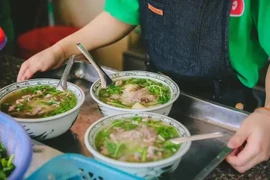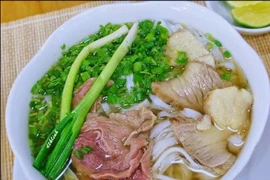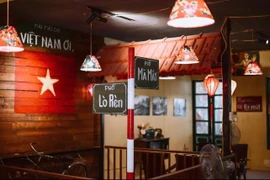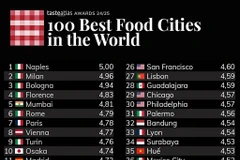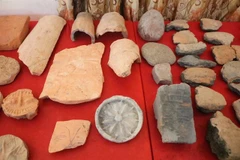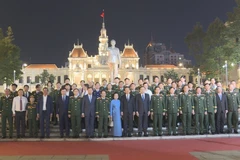Hanoi (VNA) - The recognition of Hanoi pho (Hanoi’s noodle soup) as a national intangible cultural heritage element marks a significant milestone in promoting traditional cultural values and paves the way for this iconic dish to secure its place on the global culinary map, experts said.
Meritorious Artisan Pham Thi Anh Tuyet, a renowned chef who has served pho to prominent international politicians and celebrities, shared her experiences at a seminar on preserving and promoting Hanoi pho, held during the Hanoi Culinary Culture Festival 2024. She noted that many of her guests, including high-ranking foreign leaders, were amazed by the dish’s unique flavours, describing it as special and perfectly balanced. They admire pho as a creative dish that harmoniously combines Vietnamese spices with finesse, Tuyet said.
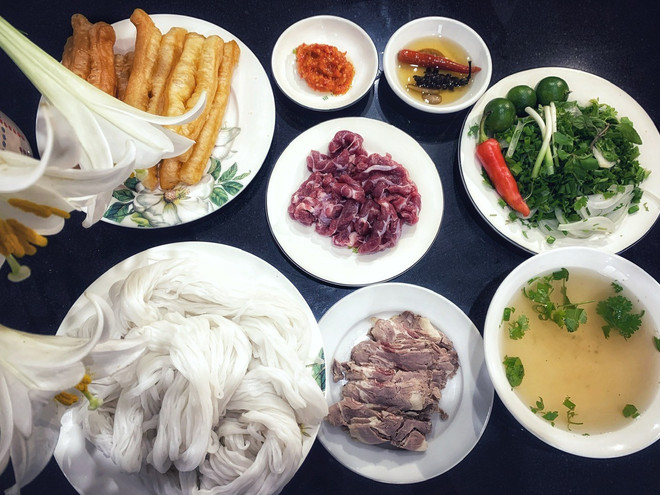
On November 29, the traditional craft of cooking Hanoi pho was officially recognised as part of the national intangible cultural heritage, reaffirming the appreciation of Hanoi’s cuisine and underscoring its cultural significance.
Many experts agree that pho is the result of generations of ingenuity shaped by its social, historical, and cultural environment.
Pho’s origins remain a subject of debate, but it is widely acknowledged as an ancient Vietnamese creation that has become a hallmark of Hanoi’s culinary identity, according to Le Thi Minh Ly, member of the National Cultural Heritage Council and Vice President of the Vietnam Cultural Heritage Association.
Ly emphasised the importance of preserving pho’s authenticity as a state-protected heritage. “Preservation must adhere to core principles and avoid unnecessary alterations while supporting the growth of the nation and the capital,” she said. She urged authorities to develop policies to safeguard pho, recognising it not just as a culinary treasure but also as a dish with deep cultural and spiritual significance.
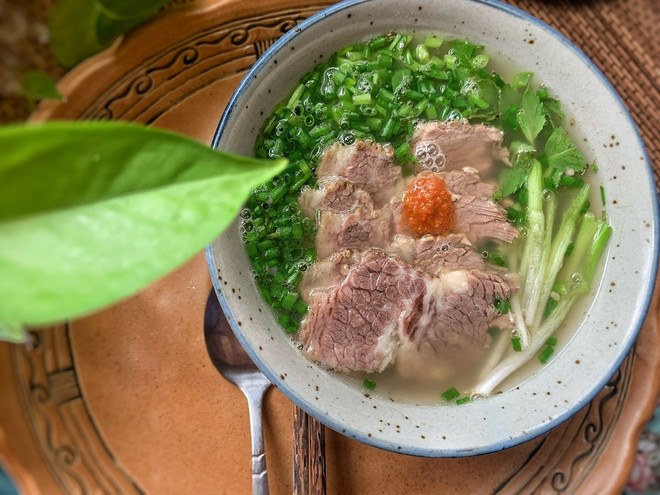
Hanoi pho stands out for its distinctive ingredients, refined cooking techniques, and the skills passed down through generations. Ly stressed that pho makers must protect their brand and reputation to prevent the dish from being overly commercialised or losing its identity.
Artisan Nguyen Thi Muoi, whose family has been in the pho business since 1930, recounted the history of her family brand, Pho Suong. “Suong means cheerful,” she explained, “because after enjoying a bowl of delicious pho, diners feel happy and satisfied.” Braving challenges, the family resumed their business in 1985, carrying forward their culinary legacy.
Artisan Bui Thi Suong from Ho Chi Minh City, who frequently introduces Vietnamese cuisine abroad, noted that pho has become synonymous with Vietnam. In the past, it was often translated as “beef noodle soup”, but now, it’s universally recognised as “pho”, she said.
Suong also highlighted how pho has evolved internationally, with some chefs incorporating unconventional ingredients like fruits. While traditionally served with rare or well-cooked beef, today’s variations include pho with wine sauce, rolled pho, stir-fried pho, and mixed pho to cater to diverse tastes.
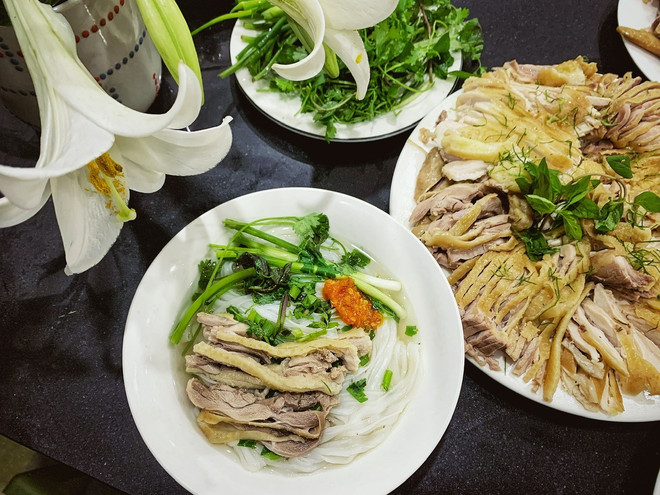
The recognition of Hanoi pho as national intangible cultural heritage not only honours its cultural and historical value but also serves as a catalyst for promoting Vietnamese cuisine on the world stage. Experts believe this milestone is a step toward elevating Vietnam’s culinary reputation globally.
At another seminar held as part of the Hanoi Culinary Culture Festival 2024, participants underscored the need for a concerted effort to preserve and pass down the art of making pho. This includes supporting traditional craft villages, training the next generation of chefs, and ensuring a skilled workforce to uphold the dish’s legacy.
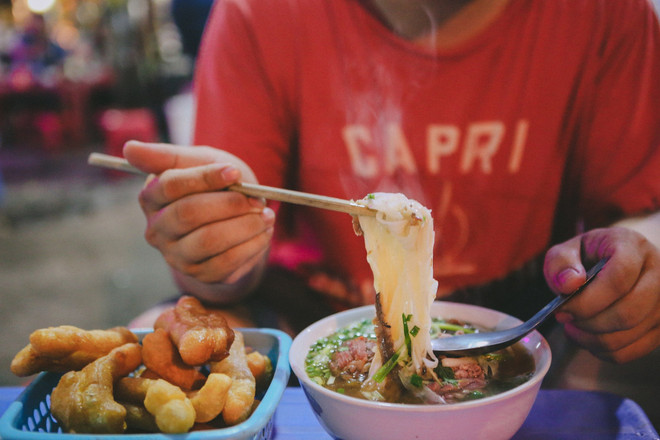
MasterChef Vietnam Pham Tuan Hai emphasised the importance of systematic culinary education.
Students should first master traditional dishes like pho as a foundation before venturing into modern, creative adaptations, he said, adding that understanding pho is inseparable from understanding Vietnamese culture.
As Hanoi pho continues to gain global recognition, it not only preserves a cherished culinary tradition but also strengthens Vietnam’s cultural identity on the global stage, ensuring its legacy for generations to come./.
